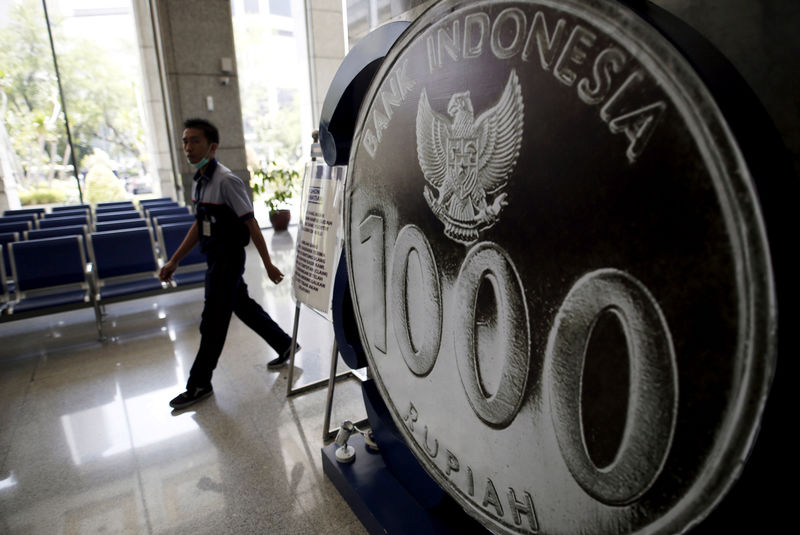JAKARTA (Reuters) - Indonesia's central bank raised its benchmark interest rate for the second time in two weeks on Wednesday and signaled more increases might come as it seeks to bolster the rupiah and contain capital outflows amid an emerging market sell-off.
The board of governors lifted Bank Indonesia's (BI) key rate <IDCBRR=ECI> by 25 basis points to 4.75 percent in the first meeting led by Governor Perry Warjiyo, who promised to make rupiah stability a near-term priority.
"Our policy direction in the future is BI will continue to calibrate global and domestic market developments to utilize room for further rate hikes in a measured way," Warjiyo told reporters.
On May 26, one day after being sworn-in for a five-year term, Warjiyo called Wednesday's off-cycle meeting. Comments by government officials on Monday convinced nearly all analysts that BI would increase rates on Wednesday's session, the first special one called since November 2014, when rates were hiked.
All but one of 18 analysts in a Reuters Poll expected an increase on Wednesday.
Stephen innes, head of Asia-Pacific currency trading at , OANDA, said Wednesday's decision showed "currency first and nothing else really matters".
The rupiah, one of the worst performers among Asian currencies this year, barely moved following the rate announcement. It was trading at about 13,985 per dollar at the time it was made.
PAST MONETARY EASING
BI had already raised its key rate by 25 basis points on May 17 to shore up the currency, then trading at its weakest since October 2015.
In 2016 and 2017, BI cut the benchmark rate by a total of 200 bps in a bid to boost sluggish lending and economic growth. But annual growth has stayed at about 5 percent.
On Monday, Finance Minister Sri Mulyani Indrawati said "We are ready to take any kind of policy to support Indonesia's economy," adding that if short-term measures mean slightly lower growth, "then that consequence has to be accepted".
The government has a 2018 growth target of 5.4 percent. BI expects 5.2 percent, better than last year's 5.07 percent.
Indrawati and other senior officials on Monday sought to shore up confidence in Southeast Asia's biggest economy at a time Indonesia, like other emerging markets, has seen an outflow of funds as U.S. assets become more attractive due to rising interest rates.
Officials note that key economic indicators are sound. The annual inflation rate is seen at 3.6 percent at the end of 2018, while the current account deficit is expected at 2.3 percent of GDP - below BI's "healthy" threshold of 3 percent.
